Faculty
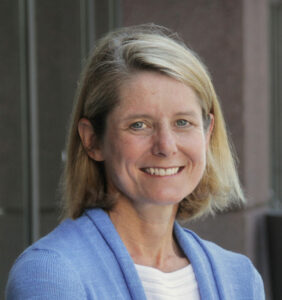
Elizabeth Frankenberg, PhD
Cary C. Boshamer Distinguished Professor, Sociology, UNC Chapel Hill
Director, Carolina Center for Population Aging and Health
e.frankenberg@unc.edu
My work focuses on how individuals and families respond to unexpected changes and how government programs and policies can help them adapt. Much of my research is about Indonesia before and after the 2004 Indian Ocean tsunami. I draw on household and community survey data that my colleagues and I have collected over the past 15 years, in combination with high resolution satellite imagery, to investigate how the disaster and subsequent recovery affect health and well-being at the population level.
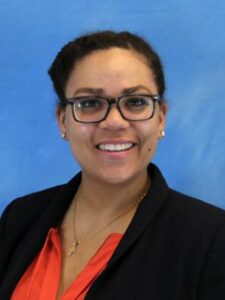
Taylor Hargrove, PhD
Assistant Professor, Sociology, UNC Chapel Hill
thargrov@email.unc.edu
Taylor W. Hargrove’s research seeks to uncover and explain the development of health disparities across the life course, focusing on the consequences of race, skin color, gender, and socioeconomic status. Her work addresses both between-group inequalities in health as well as sources of heterogeneity within groups that differentiate pathways to health. She is currently engaged in
research that explores linkages among socio-geographic contexts, individual-level characteristics, and biological measures of health in early adulthood.

Linda Adair, PhD
Professor, Nutrition
linda_adair@unc.edu
Linda Adair’s research focuses on maternal and child health and nutrition in low- and middle-income countries globally. She studies the determinants and long-term consequences of infant and early childhood feeding and growth patterns, the developmental origins of adult health and well being, determinants of healthy aging, and the role of HIV in maternal and child nutritional status, pregnancy and birth outcomes. She uses longitudinal analysis methods incorporating a life-course focus in numerous ongoing population-based cohort studies.

Christy Avery, PhD
Associate Professor, Epidemiology
Christy_avery@unc.edu
Christy Avery’s research revolves around the promotion of cardiovascular health across the lifespan. To do so, Dr. Avery is interested in understanding the common genetic footprint shared by many chronic diseases as well as the influence of gene-environment interaction and genomic biomarkers, particularly metabolomics.

Clare Barrington, PhD
Professor, Department of Health Behavior
Clare Barrington, PhD, is a professor and director of the doctoral program in the Department of Health Behavior at the University of North Carolina (UNC) Gillings School of Global Public Health. She is also the Latin American Projects Director for the UNC
Institute for Global Health and Infectious Diseases and a fellow at the Carolina Population Center.

John Batsis, MD
Associate Professor, Division of Geriatric Medicine and Gillings School of Global Public Health
I have dedicated my professional career to caring for older adults through clinical care, research and education. Having the privilege of helping older adults maximize their physical function and quality of life through patient-centered, compassionate care motivates me in my work every day. My role as a clinician-researcher allows me to apply scientific principles of inquiry to enhance clinical care for an older adult population. Through learning and discovery of knowledge, we can maximize healthy aging by enhancing goal-directed care and healthcare delivery for older adults.
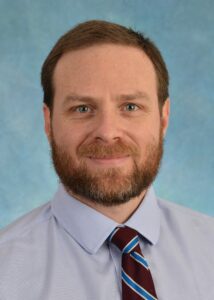
Seth Berkowitz, MD, MPH
Assistant Professor, Division of General Medicine and Clinical Epidemiology
Seth Berkowitz is a general internist with training in health services research and in conducting and evaluating interventions. His research expertise focuses on understanding the relationship between food insecurity and health outcomes, along with studying interventions to help individuals overcome this barrier to health equity, particularly in the context of diabetes and obesity.

Ganga Bey, MPH, PhD
Assistant Professor, Department of Epidemiology
Ganga Bey is an Assistant Professor in the Department of Epidemiology within the UNC Gillings School of Global Public Health. She studies how people’s beliefs about identity, worth, and ability affect their stress, aging, and susceptibility to disease.

Kenneth A. Bollen, PhD
Henry Rudolph Immerwahr Distinguished Professor, Psychology & Neuroscience and Department of Sociology
Ken Bollen develops new quantitative methods to apply to the population and social/behavioral
sciences. These include new models to analyze longitudinal data, creative approaches to analyze difficult to measure concepts, and developing estimators that have greater robustness to the approximate
nature of our models. Population studies, health, and trauma are the contexts within which he develops these methods while also addressing practical substantive questions.

Yong Cai, PhD
Associate Professor Professor, Sociology, UNC Chapel Hill
caiyong@unc.edu
Cai’s research focuses on China’s one-child policy and its implications for fertility and social policies. Specifically, his work shows that: China’s fertility has dropped to a level well-below the replacement; the demographic impact of the one-child policy was modest, much less than the government’s claim of 400 million averted births; socioeconomic development played critical role in driving China’s fertility decline; and the socioeconomic impacts of low fertility and population aging are substantial. The consensus on these issues, to which Cai contributed, provided the empirical and scientific foundation that persuaded Chinese government to end the three-decades long policy.

Paul Delamater, PhD
Assistant Professor, Geography, UNC Chapel Hill
pld@email.unc.edu
Paul L. Delamater is interested in the geographic aspects of health outcomes and behaviors, as well as health care access and utilization. He uses methods that employ geographic information systems (GIS) and spatial analysis to better understand population health issues. His recent research has focused on understanding childhood vaccination, herd immunity, and vaccine-preventable diseases in the US.

Nathan Dollar, PhD
Director, Carolina Demography, UNC Chapel Hill
ntdollar@unc.edu
Dr. Nathan Dollar is the Director of Carolina Demography. His work helps leaders across North Carolina make sense of population-level changes throughout the state.
Dollar, a population health demographer by training, has decades of experience in research and program implementation across North Carolina and abroad. Most recently Dollar served as a research scientist and Project Director for the Dynamics of Extreme Events, People, and Places (DEEPP) survey at the Carolina Population Center. There, he worked with an interdisciplinary team of researchers investigating the factors that shape how people and communities in eastern North Carolina, prepare for, are affected by, and recover from extreme weather events.

Michael Emch, PhD
W.R. Kenan, Jr. Distinguished Professor, Geography and Epidemiology, UNC Chapel Hill
emch@unc.edu
Michael Emch’s expertise is in spatial epidemiology, disease ecology, and geographic information science applications of public health mostly on infectious diseases. He studies spatial patterns of diseases by investigating the role of social, natural, and built environments in disease occurrence in different places and populations, leading efforts to incorporate spatial sciences into different areas of inquiry in the health sciences.

Jason R. Franz, PhD
Associate Professor, Join Department of Biomedical Engineering
jrfranz@email.unc.edu
Dr. Jason Franz received his B.S. and M.S. degrees in Engineering Mechanics from Virginia Tech and, after serving as a staff scientist in Physical Medicine & Rehabilitation at the University of Virginia, received his Ph.D. in Integrative Physiology from the University of Colorado Boulder. He then completed an NIH Post-Doctoral Fellowship in the Department of Mechanical Engineering at the University of Wisconsin-Madison. Since 2015, Dr. Franz has served as an Assistant Professor in the Joint Department of Biomedical Engineering and the Director of the UNC Applied Biomechanics Laboratory. His laboratory’s mission is to preserve independent mobility and prevent falls in our rapidly aging population through scientific, technological, and translational innovation. The laboratory uses a highly integrative approach that combines quantitative motion analysis and electromyography with dynamic ultrasound imaging, computational simulation, and virtual reality.

Tanya P. Garcia, PhD
Associate Professor, Biostatistics, UNC Chapel Hill
tpgarcia@email.unc.edu
Excited about innovating practical and theoretically sound methods that address challenges in biomedical fields, Dr. Garcia has built a strong interdisciplinary research agenda. It involves national and international collaborations with neuroscientists and biologists, high-impact learning opportunities for students, and service work that promotes a future of diverse (bio)statisticians. Her research focuses on extracting maximal information from large, highly correlated data structures and has led to scientific discoveries in neurodegenerative diseases and the gut microbiome. Her teaching integrates these research activities with interactive, learner-centered projects that promote critical thinking. Her leadership in service activities involves promoting the success of underrepresented groups in (bio)statistics and providing her professional expertise regionally and internationally.

Lauren Gaydosh, PhD
Associate Professor, Sociology, UNC Chapel Hill
lgaydosh@unc.edu
Dr. Gaydosh’s primary research focuses on better understanding the role of early life environments in shaping health across the life course. This work integrates social, contextual, and biological data from population-based longitudinal studies to examine how inequalities in the social environment get under the skin to create health disparities. Her research has been funded by the National Institutes of Health, the National Science Foundation, and the US Fulbright Program. Dr. Gaydosh received her PhD in Sociology, Demography, and Social Policy from Princeton University in 2015.

Kelly Giovanello, PhD
Bowman and Gordon Gray Distinguished Term Professor in the department of Psychology and Neuroscience
She serves as the Associate Director of the Biomedical Research Imaging Center at UNC
Chapel Hill. Her research interests center on understanding the cognitive processes and neural mechanisms that give rise to human memory, and how mnemonic processes change across the adult lifespan.

Donna Gilleskie, PhD
Chair, Economics, UNC Chapel Hill
donna_gilleskie@unc.edu
As a health economist, I study the economic behavior of individuals as it relates to their health. The approach reflected in my work involves understanding decisionmaking over time, so it is likely to involve forward-looking optimization theory and dynamic empirical models. I’ve studied smoking behavior, employment behaviors, and medical and non-medical health input behaviors.

Penny Gordon-Larsen, PhD
Professor, Nutrition, UNC Chapel Hill
Associate Dean for Research, Gillings School of Global Public Health
pglarsen@unc.edu
Penny Gordon-Larsen’s NIH-funded research portfolio focuses on individual-, household-, and
community-level susceptibility to obesity and its cardiometabolic consequences, and her work ranges from molecular and genetic to environmental and societal-level factors. Much of her research focuses on identifying modifiable factors to reduce disparities in obesity and
its consequences by race/ethnicity and socioeconomic status. She is also particularly interested in the pathways linking environment and behavior to cardiometabolic and cardiovascular disease risk.

Annie Green Howard, PhD
Associate Professor, Biostatistics
aghoward@email.unc.edu
Annie Green Howard is interested in the development and application of statistical modeling approaches, with a substantive focus on obesity and cardiometabolic disease. She specializes in using longitudinal models and latent variables to study the integration of biology, behavior and environment in relation to health outcomes

Guang Guo, PhD
Dr. George and Alice Welsh Distinguished Professor, Sociology, UNC Chapel Hill
guang_guo@unc.edu
Guang Guo has focused on the intersection of sociology and genomics, incorporating advances in genomics and epigenomics in the studies of social science issues such as social stratification and health inequality. His work takes advantage of dazzling developments in molecular genomics over the past quarter century have undermined an assumption still common in mainstream social sciences — that individuals are about the same at birth (a “blank slate”) and that the observed differences across individuals are due entirely to environmental influences.

Carmen Gutierrez, PhD
Assistant Professor, Public Policy, UNC Chapel Hill
In her research, Dr. Gutierrez examines how structural and institutional racism cause health inequalities among people in the
United States. She is particularly interested in the ways that population health disparities are shaped by the US criminal legal system and the US immigration system. Her work on these topics blends perspective from social demography, critical race theory, and feminist geography to investigate the role of US institutions and policies in shaping Black and Brown people’s health in unique ways.

Carolyn Tucker Halpern, PhD
Chair, Maternal and Child Health, UNC Chapel Hill
carolyn_halpern@unc.edu
Carolyn T Halpern is a developmental psychologist; her research aims to improve understanding of healthy sexual development and the implications of adolescent experiences for developmental and demographic processes into adulthood. Much of her work focuses on the National Longitudinal Study of Adolescent to Adult Health (Add Health), for which she served as Deputy Director from
2006-2020, and she is co-PI of a recently launched NICHD/NIMHD-funded study, “Sexual Orientation/Gender Identity, Socioeconomic Status, and Health across the Life Course,” that will collect new developmental data from sexual and gender minorities in the Add Health cohort.
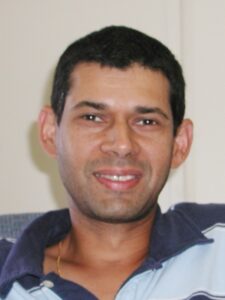
Sudhanshu (Ashu) Handa, PhD
Kenan Eminent Professor, Public Policy, UNC Chapel Hill
shanda@email.unc.edu
Dr. Handa is an economist working on poverty, health and human development in sub-Saharan Africa. He is co-PI of The Transfer Project, a regional initiative with UNICEF and FAO to understand the broad effects of government sponsored cash transfer programs in sub-Saharan Africa. He is currently studying the long-term effects of cash transfers in Zambia and Malawi.

Kathleen Mullan Harris, PhD
James Haar Distinguished Professor, Sociology, UNC Chapel Hill
kathie_harris@unc.edu
Kathleen Mullan Harris studies social inequality and health seeking to understand how disadvantaged environments and social experiences influence physical well-being across the life course. Her research focuses on the biosocial processes that increase health risks early in life before disease is manifest to inform policies that reduce health disparities and improve population health.

Mark Holmes, PhD
Professor, Health Policy and Management, Director, Sheps Center for Health Services Research, UNC-Chapel Hill
Mark Holmes is a trained applied econometrician in labor and health economics. He is the Director of the Cecil G. Sheps Center for Health Services Research, where he is also the Director of the North Carolina Rural Health Research and Policy Analysis Center and the Co-Director of the Program on Health Care Economics and Finance. His research expertise is focused on rural health and health policies, particularly health care utilization and using administrative datasets to capture area-level health care access, utilization, and burden of disease.

Robert Hummer, PhD
Howard W. Odum Distinguished Professor, Sociology, UNC Chapel Hill
rhummer@email.unc.edu
Robert A. Hummer’s research program is focused on the accurate description and more complete understanding of population health patterns and trends in the United States. He is currently Co-Director, with Kathleen Mullan Harris, of the long-running National Longitudinal Study of Adolescent to Adult Health (Add Health), a nationally-representative longitudinal study of over 20,000 American adults who are now around 40 years old and have been followed since they were adolescents. Dr. Hummer is particularly interested in understanding how and why the physical, mental, and cognitive health of individuals in the Add Health study differs across racial/ethnic, gender, and socioeconomic subgroups of the population.

Kristen Lindquist, PhD
Professor of Psychology and Neuroscience, UNC-Chapel Hill
Kristen Lindquist, PhD. is a Professor of Psychology and Neuroscience at the University of North Carolina, Chapel Hill. Her research seeks to understand the psychological and neural basis of emotions, moods, and feelings. Her on-going work uses tools from social cognition, physiology, neuroscience, and big data methods to examine how emotions emerge from the confluence of the body, brain, and culture.

Jennifer L. Lund, PhD
Associate Professor, Epidemiology, UNC Chapel Hill
jennifer.lund@unc.edu
Dr. Lund’s research focuses at the intersection of aging, multimorbidity and oncology. She has developed expertise in health services and comparative effectiveness research. Her research aims to generate robust evidence regarding the uses, benefits and harms of medical interventions for older cancer patients.

Chantel Martin, PhD
Assistant Professor, Epidemiology, UNC Chapel Hill
martchan@email.unc.edu
Dr. Chantel Martin’s research seeks to uncover social and biological mechanisms of health disparities across the life course. By identifying the long-term effects of early life stressors, such as neighborhood deprivation, crime, residential segregation, and air pollution, her multidisciplinary research aims to improve health among racial/ethnic minorities and eliminate health disparities.

Joanna “Asia” Maselko, PhD
Associate Professor, Epidemiology, UNC Chapel Hill
jmaselko@email.unc.edu
Dr. Maselko’s research aims to identify causal mechanisms through which the social environment impacts the development of neuropsychiatric disorders. Much of this research focuses on the inter-generational transmission of risk, and how the family and socioeconomic environments shape socio-emotional and cognitive developmental trajectories. Recent work is exploring granpdarent-grandchild interactions and their potential impact on both child and grandparent health and well-being.

Jeremy Moulton, PhD
Associate Professor, Public Policy, UNC Chapel Hill
moulton@email.unc.edu
Jeremy G. Moulton works to better understand how public policy affects people in intended and unintended ways. He has investigated a broad selection of different policies, for instance the effect of children aging out eligibility for the Earned Income Tax Credit on women’s decisions to work, the role of Medicare Part-D on self-employment decisions, and the impact of property tax exemptions for the elderly and disabled veterans on home prices.
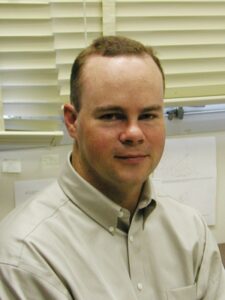
Ted Mouw, PhD
Professor, Sociology, UNC Chapel Hill
tedmouw@email.unc.edu
Ted Mouw is a sociologist who studies labor markets, immigration, and social networks. His current research involves the mobility of low-wage workers, the economic incorporation of immigrants, and methods to collect samples from rare or hidden populations using social networks.

Priya Palta, PhD, MHS
Associate Professor, Neurology
Priya Palta is an Associate Professor of Neurology. Dr. Palta received her PhD (2013) and MHS (2010) in Epidemiology from Johns Hopkins University. Before joining Neurology, Dr. Palta was Assistant Professor of Medical Sciences and Epidemiology at Columbia University Irving Medical Center and Adjunct Assistant Professor of Epidemiology at UNC-Chapel Hill Gillings School of Global Public Health. Dr. Palta’s research focuses on cognitive function of older adults, cognitive decline, and preventing Alzheimer’s Disease through cardiovascular health.

Krista Perreira, PhD
Professor, Social Medicine
krista_perreira@med.unc.edu
Krista M. Perreira is a health economist who studies disparities in health, education, and economic well-being and inter-relationships between family, health and social policy. Focusing on immigrant families, her research combines qualitative and quantitative methodologies to study migration from Latin America and the health and educational consequences of migration and policies affecting immigrant populations. Through community-based and clinical partnerships, she also develops interventions, programs and practices to improve the well-being of immigrant families and their children.

Klara Peter, PhD
Associate Professor, Economics, UNC Chapel Hill
kpeter@unc.edu
Klara Peter’s research focuses on behavioral responses of individuals and firms to public policies in a weak institutional environment. In the context of several transitional economies, she examined the effect of market reforms on the quality of life, worker flows, returns to human capital, and firm efficiency.
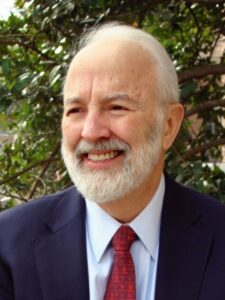
Barry M. Popkin, PhD
W.R. Kenan, Jr. Distinguished Professor, Nutrition, UNC Chapel Hill
popkin@unc.edu
Barry Popkin helps countries design the most effective national regulations and fiscal policies to promote healthy eating, obesity prevention, and sustainability while reducing undernutrition and leads programs undertaking evaluations of these new policies. His work covers dozens of countries with a current focus on the US, Mexico, Peru, Chile, Colombia, Brazil, South Africa and cohorts in a number of counties, especially the China Healthy Nutrition Survey in China. He focuses also on the nutrition transition across the life cycle. All his work focuses on reducing disparities in health.

Margaret Sheridan, PhD
Associate Professor, Clinical Psychology, UNC Chapel Hill
Dr. Sheridan studies the neural mechanisms through which adversity affects brain development and risk for externalizing disorders; diagnosis and treatment of attention-deficit and hyperactivity disorder in early childhood; and typical and atypical development of the prefrontal cortex. Visit her online: Child Imaging Research on Cognition and Life Experiences.

Justin Sola, PhD
Assistant Professor, Sociology, UNC Chapel Hill
jlsola@unc.edu
I research gun ownership and how the criminal justice system interacts with inequality. I use preregistered experiments (forced-choice conjoint and vignette), machine learning, longitudinal designs (smartphone-delivered surveys), semi-structured interviews, participant observation, and topic modeling. I teach methods, sociology, and how to critically analyze crime policy.

Til Sturmer, MD, MPH, PhD
Nancy A. Dreyer Distinguished Professor and Chair, Epidemiology, UNC Chapel Hill
sturmer@unc.edu
Dr. Stürmer is an internist and epidemiologist with expertise in state of the art methods for nonexperimental treatment comparisons, including comparative effectiveness research, and real world evidence based on real world data. He has worked as a cancer epidemiologist, has over 15 year experience in analyzing claims data and merging claims data to other data sources, and is an internationally recognized leader in pharmacoepidemiology, propensity scores, and disease risk scores.

Amanda Thompson, PhD
Associate Chair and Associate Professor, Anthropology, UNC Chapel Hill
althomps@email.unc.edu
Amanda Thompson is a human biologist specializing in human growth and nutrition. She focuses on the biological pathways linking early life social, behavioral and physical environments to health outcomes across a range of national and international settings, including North Carolina, China, and Ecuador. She is particularly interested in how early life nutrition and environmental exposures shape the development of obesity and chronic disease.

Y. Claire Yang, PhD
Professor, Sociology, UNC Chapel Hill
yangy@unc.edu
Yang conducts transdisciplinary research focusing on social disparities in health and
aging that crosscuts life course sociology, biodemography, social epidemiology, and statistical methods. She has established an innovative and proliferative program of scholarship on this topic. Her overarching goal is to discover complex patterns and mechanisms of population health disparities and their changes over the life course.

Sheryl Zimmerman, PhD
University Kenan Distinguished Professor, School of Social Work; Co-Director, Program on Aging,
Disability and Long-Term Care, Cecil G. Sheps Center for Health Services
Research; Executive Director, Center for Excellence in Assisted Living (CEAL@UNC); Sheryl_Zimmerman@unc.edu
Dr. Zimmerman is internationally recognized as a leading expert in long-term services and supports, especially related to nursing homes and assisted living. She is a founder and director of the Collaborative Studies of Long-Term Care, the largest research consortium of long-term care settings across the country. It was established in 1997, and with funding from the National Institutes of Health, the Agency for Healthcare Research and Quality, the Alzheimer’s Association, and numerous other funders, Dr. Zimmerman has led almost 100 projects in thousands of settings involving tens of thousands of staff, residents, and family members. The Collaborative focuses on quality of life and quality of care of individuals living and working in long-term care and has influenced policy and practice through close collaborations with a range of stakeholders.
